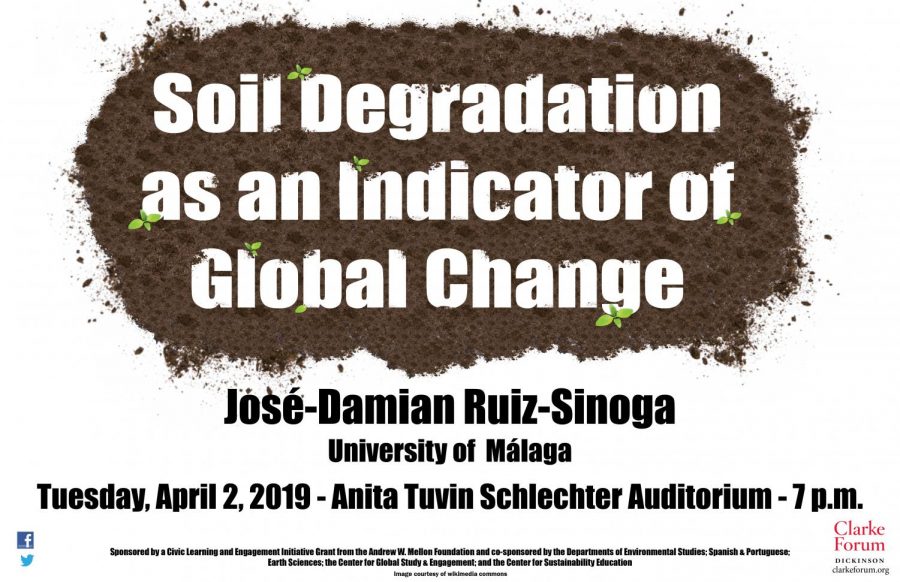Professor Presents Research on Soil Degredation
A professor from the University of Málaga presented his geographical research which emphasized the need for a “global solution” to climate change.
José-Damian Ruiz-Sinoga, professor of physical geography, discussed soil data collected in Southern Spain. He found that in recent years dry spells and droughts have increased in Spain, causing greater strain on its soil system. The increase in droughts has led to decreased rainfall which is hurting the vegetation that helps keep the soil stable.
“There are a good frequency and distribution of dry months, the main droughts start beyond 1980. The 2004-2006 [drought] was especially intense inland… But now when we are speaking about droughts, we must be taking into account if we are talking about ecological, economical or ideological,” Ruiz said, referring to the multilayered causes and effects of droughts.
Megan Bell ’19, who serves as the student program manager for the event, was especially interested in soil degradation as a visual indication of climate change.
“[Soil degradation] … affects a lot of different things… agricultural productivity is affected, and that has a lot of widespread effects, whether it be the economy, the political situation,” Bell said. Additionally, her interest in politics causes her to “like learning how something related to science affects other aspects of society.”
Elizabeth Cassell ’22 found the way the speaker integrated data and images into his presentation very effective. “[O]nce you have less rainfall it affects vegetation cover and the soil composition and all of that and how it all relates,” she said.
“Soil Degradation as an Indicator of Global Change” was held on Tuesday, April 2 at 7 p.m. in ATS. The lecture was sponsored by the Clarke Forum for Contemporary Issues, the Departments of Environmental Studies, Spanish & Portuguese, and Earth Sciences, the Center for Global Study & Engagement and the Center for Sustainability Education.






